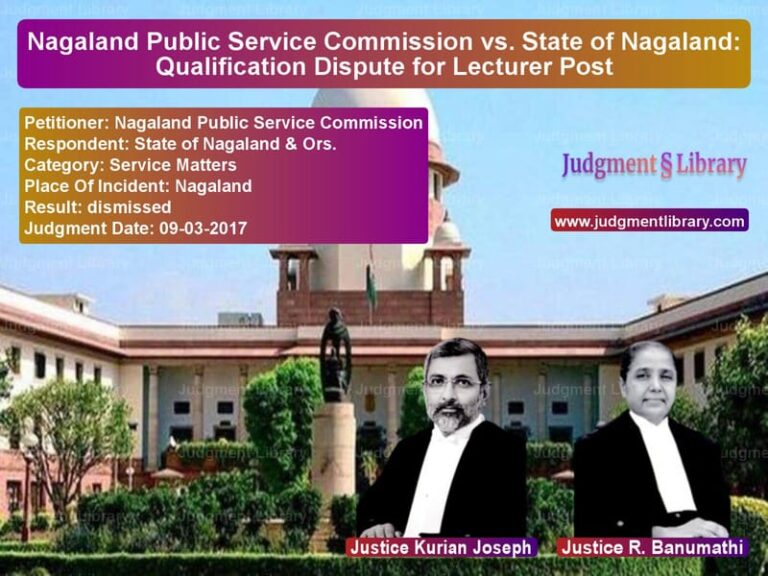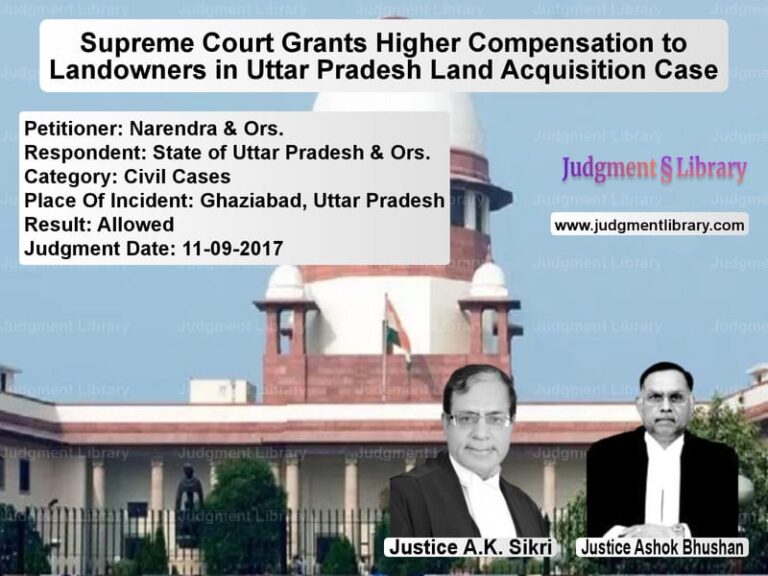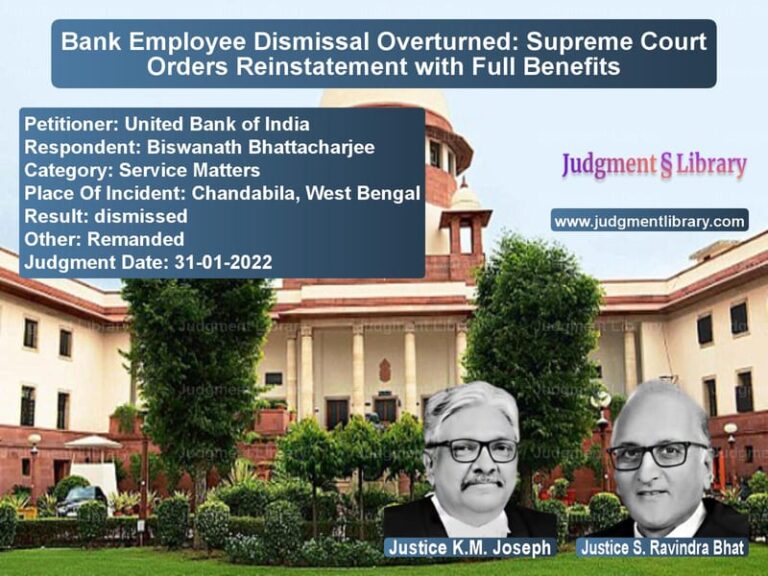Ancestral Property Rights and Hindu Succession Act: Supreme Court Judgment Explained
The Supreme Court recently delivered a landmark judgment in a long-standing dispute regarding the partition of ancestral properties. This case involved complex legal questions surrounding the rights of daughters in ancestral property under the Hindu Succession Act, 1956, especially after its amendment in 2005. The case revolved around the rightful claims of the Plaintiff, Mrs. Charulata Sahoo, and the settlement dispute between Defendant No. 1, Late Shri Prafulla Sahoo, and Defendant No. 2, Mrs. Santilata Sahoo.
In this blog, we provide an in-depth analysis of the judgment, the legal arguments presented by both sides, and the Supreme Court’s interpretation of the law.
Background of the Case
The dispute centered around properties originally owned by Late Shri Kumar Sahoo. Following his demise, a legal conflict emerged between his legal heirs regarding the distribution of these properties. The Plaintiff, Charulata Sahoo, filed a suit seeking partition, arguing that she was entitled to an equal share. The primary issues in the case included:
- Whether the properties were ancestral or self-acquired.
- The rights of daughters in ancestral properties post-2005 amendment to the Hindu Succession Act.
- The validity of a settlement agreement between Defendant No. 1 and Defendant No. 2.
Trial Court’s Decision
The Trial Court ruled in favor of the Plaintiff but granted her a lesser share in the properties, acknowledging the claims of the other heirs. The court’s decision was challenged by both sides, leading to an appeal before the High Court.
High Court’s Ruling
The High Court overturned the settlement agreement between the Defendants, ruling that it was invalid as it was executed without the Plaintiff’s consent. It upheld her right to an equal share in the ancestral properties, prompting the matter to be escalated to the Supreme Court.
Petitioner’s Arguments
- The properties in question were self-acquired, not ancestral, and therefore, the Plaintiff had no claim.
- The settlement agreement between Defendant No. 1 and Defendant No. 2 was legally binding and could not be challenged.
- The Plaintiff’s claims were barred by limitation.
Respondent’s Arguments
- The properties were ancestral in nature, and under the 2005 amendment to the Hindu Succession Act, daughters had equal rights.
- The settlement agreement between the Defendants was invalid as it was executed without her consent.
- The High Court’s ruling was correct and should be upheld.
Supreme Court’s Analysis
The Supreme Court, while delivering its verdict, made the following observations:
- The properties were ancestral, and as per the 2005 amendment, daughters had equal rights.
- The Plaintiff was entitled to an equal share, overturning the Trial Court’s ruling.
- The compromise agreement between Defendant No. 1 and Defendant No. 2 was legally unenforceable as it lacked the consent of all affected parties.
Final Judgment
The Supreme Court ruled in favor of the Plaintiff and set aside the compromise decree. The Trial Court was directed to modify the final decree to reflect the Plaintiff’s rightful share in the properties.
Implications of the Judgment
This judgment is significant as it reinforces the equal property rights of daughters under the Hindu Succession Act. It sets a strong precedent for similar cases and ensures that legal settlements cannot be enforced without the consent of all concerned parties.
The ruling clarifies that ancestral property cannot be arbitrarily divided through agreements between some heirs while excluding others. It reaffirms the legal principle that all legal heirs must be considered in property division cases.
Conclusion
The Supreme Court’s decision in this case upholds the principles of equality and justice in property inheritance. It is a landmark judgment ensuring that daughters cannot be deprived of their rightful share in ancestral properties. The judgment not only settles the dispute in this case but also serves as a guiding precedent for future inheritance disputes.
Petitioner Name: Prasanta Kumar Sahoo & Ors..Respondent Name: Charulata Sahoo & Ors..Judgment By: Justice A.S. Bopanna, Justice J.B. Pardiwala.Place Of Incident: Cuttack, Odisha.Judgment Date: 29-03-2023.
Don’t miss out on the full details! Download the complete judgment in PDF format below and gain valuable insights instantly!
Download Judgment: prasanta-kumar-sahoo-vs-charulata-sahoo-&-or-supreme-court-of-india-judgment-dated-29-03-2023.pdf
Directly Download Judgment: Directly download this Judgment
See all petitions in Property Disputes
See all petitions in Succession and Wills
See all petitions in Specific Performance
See all petitions in Judgment by A. S. Bopanna
See all petitions in Judgment by J.B. Pardiwala
See all petitions in dismissed
See all petitions in supreme court of India judgments March 2023
See all petitions in 2023 judgments
See all posts in Civil Cases Category
See all allowed petitions in Civil Cases Category
See all Dismissed petitions in Civil Cases Category
See all partially allowed petitions in Civil Cases Category







